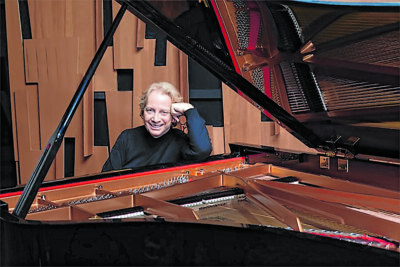Loud noises damage hearing
 Hearing loss is the third most common chronic health condition in the U.S. Almost twice as many people report hearing loss as report diabetes or cancer. Noise exposure away from your job can damage your hearing just as much as working in a noisy place.
Hearing loss is the third most common chronic health condition in the U.S. Almost twice as many people report hearing loss as report diabetes or cancer. Noise exposure away from your job can damage your hearing just as much as working in a noisy place.
Being around too much loud noise—like using a leaf blower or going to loud concerts—can cause permanent hearing loss. And once it’s gone, you can’t get it back. You can have hearing loss before you even notice you’re having problems. Noise is measured in what are called decibels (dB).
Over time, listening to loud sounds at high dB levels can cause hearing loss—or other hearing problems like a ringing sound in your ear that won’t go away. The louder a sound is, and the longer you are exposed to it, the more likely it will damage your hearing. The more often you are exposed to loud sounds over time, the more damage occurs. It’s important for health care providers to ask about hearing and to screen those who are at risk.
Health care providers can:
• Ask patients about exposure to loud noise and trouble hearing, and examine hearing as part of routine care.
• Provide hearing tests when patients show or report hearing problems, or refer them to a hearing specialist.
• Explain how noise exposure can permanently damage hearing.
• Counsel patients on how to protect hearing.
Many people are exposed to noise that damages their hearing.
Hearing gets worse over time the more often people are exposed to loud sounds.
• About 53 percent of people ages 20-69 who have hearing damage from noise report no on-the-job exposure.
• About 24 percent of people ages 20-69 who report having excellent hearing have measurable hearing damage.
• About 20 percent of adults with no job exposure to loud sounds have hearing damage.
Hearing loss gets worse for years it’s noticed or diagnosed.
• People may not know that activities away from work can damage hearing just as much as noise on the job.
• People delay reporting hearing loss because they don’t know or won’t admit they have a problem.
• Less than half (46 percent) of adults who reported trouble hearing had seen a health care provider for their hearing in the past five years.
Hearing loss causes many problems.
• Continual exposure to noise can cause stress, anxiety, depression, high blood pressure, heart disease, and many other health problems.
• Some people are at higher risk for hearing loss, including those who are exposed to loud sounds at home and in the community, work in noisy environments, take medicines that increase their risk, are male and are age 40 or older.
—Centers For Disease Control and Prevention (CDC)



















